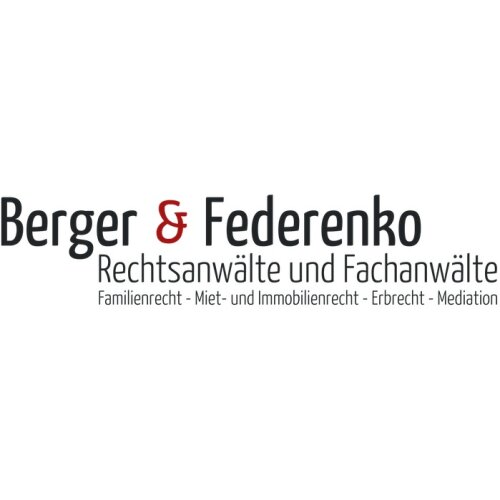Best Native People Lawyers in Cologne
Share your needs with us, get contacted by law firms.
Free. Takes 2 min.
List of the best lawyers in Cologne, Germany
About Native People Law in Cologne, Germany
Native People Law in Cologne, Germany refers to the legal framework and regulations that pertain to the rights and interests of Native People living in Cologne, Germany. Native People, also known as indigenous people, have unique legal considerations and rights that aim to safeguard their cultures, languages, identities, and ancestral territories.
Why You May Need a Lawyer
There are various situations where you may require legal help in matters related to Native People in Cologne, Germany. Some common reasons to seek legal assistance include:
- Land rights disputes
- Cultural heritage protection
- Discrimination and human rights violations
- Business and economic development
- Community governance and self-determination
Local Laws Overview
Native People in Cologne, Germany are protected by both national and international laws. The key aspects of local laws that are particularly relevant to Native People are:
- Land rights: Laws that recognize and protect Native People's rights to their ancestral lands and territories.
- Language and culture: Legislation that promotes the preservation, revitalization, and protection of Native People's languages and cultures.
- Discrimination and equality: Anti-discrimination laws that prohibit any form of discrimination against Native People and promote equality.
- Self-governance and participation: Laws that recognize Native People's right to self-governance, participation in decision-making processes, and the management of their own affairs.
Frequently Asked Questions
Q: Are Native People in Cologne, Germany recognized as distinct legal entities?
A: Yes, Native People in Cologne, Germany are recognized as distinct legal entities possessing certain rights and protections.
Q: Can Native People own and manage their ancestral lands in Cologne, Germany?
A: Yes, Native People in Cologne, Germany have the right to own and manage their ancestral lands, subject to certain legal restrictions.
Q: How can I report discrimination or human rights violations against Native People in Cologne, Germany?
A: If you witness or experience discrimination or human rights violations against Native People, you should report the incidents to local law enforcement authorities, human rights organizations, or legal aid clinics.
Q: Are there any specific grants or funding available to support Native People initiatives in Cologne, Germany?
A: Yes, there are various grants and funding programs provided by governmental bodies and organizations that support Native People initiatives, including cultural preservation, education, economic development, and community projects.
Q: How can I learn more about the rights and legal protections of Native People in Cologne, Germany?
A: To gain a deeper understanding of the rights and legal protections of Native People, you can consult legal professionals specializing in Native People law, visit local cultural centers, or access information from indigenous rights organizations and governmental resources.
Additional Resources
- German Institute for Human Rights - www.institut-fuer-menschenrechte.de
- Cologne Indigenous Peoples' Cultural Center - www.cipc.de
- Cologne Indigenous Rights Organization - www.indigenousrights-cologne.de
Next Steps
If you require legal assistance regarding Native People in Cologne, Germany, follow these steps:
- Identify the specific issue or concern you need legal help with.
- Research and reach out to legal professionals specializing in Native People law.
- Consult with the lawyer to discuss your situation and seek advice.
- Provide any relevant documentation or evidence to support your case.
- Frequently communicate with your lawyer and follow their guidance throughout the legal process.
Lawzana helps you find the best lawyers and law firms in Cologne through a curated and pre-screened list of qualified legal professionals. Our platform offers rankings and detailed profiles of attorneys and law firms, allowing you to compare based on practice areas, including Native People, experience, and client feedback.
Each profile includes a description of the firm's areas of practice, client reviews, team members and partners, year of establishment, spoken languages, office locations, contact information, social media presence, and any published articles or resources. Most firms on our platform speak English and are experienced in both local and international legal matters.
Get a quote from top-rated law firms in Cologne, Germany — quickly, securely, and without unnecessary hassle.
Disclaimer:
The information provided on this page is for general informational purposes only and does not constitute legal advice. While we strive to ensure the accuracy and relevance of the content, legal information may change over time, and interpretations of the law can vary. You should always consult with a qualified legal professional for advice specific to your situation.
We disclaim all liability for actions taken or not taken based on the content of this page. If you believe any information is incorrect or outdated, please contact us, and we will review and update it where appropriate.









